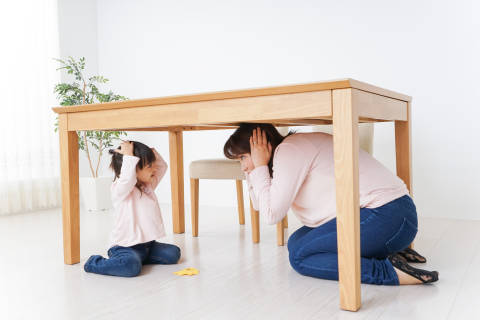As caregivers, we strive to create a safe and nurturing environment where our children can grow and thrive. However, there are times when life throws unexpected challenges their way. While stress is a natural part of life, being exposed to ongoing, harmful stress—called toxic stress—can negatively affect children’s health. It's important to know the signs of toxic stress so that we can provide the support needed to protect them.

Toxic stress happens when the body’s stress system keeps getting turned on for a long time due to exposure to ongoing hardship, such as the loss of a parent or harsh language, without enough help or adequate support to make it better. When toxic stress builds up in the body, it can have a negative impact on children's physical, emotional, and cognitive development.
Toxic stress is different from the regular stress children may feel when they’re trying something new and challenging for the first time, like learning how to tie their shoes. Toxic stress occurs when children’s bodies don’t get any relief from the heightened reactions caused by traumatic experiences.
If your child is experiencing toxic stress, it can be difficult to spot. Not all children will show the same symptoms of toxic stress. And some children may even hide them or cover them up. It’s important to look for any big, sudden changes in your child’s physical, emotional, and mental health. While the symptoms listed below don’t necessarily mean your child is experiencing toxic stress, unexpected and severe changes in any of these categories can be a sign it’s time to talk to a professional to understand the root cause.
Physical symptoms:
Difficulty sleeping
Frequent illness
Digestive problems
Headaches
Stomachaches
Weight changes
Emotional symptoms:
Anxiety
Depression
Anger
Withdrawal
Hyperactivity
Irritability
Cognitive symptoms:
Difficulty paying attention
Memory problems
Learning difficulties
Poor problem-solving skills
Difficulty making friends
If you believe that your child might be showing symptoms of toxic stress, there are many different ways you can help protect them. Helping your child understand and manage their emotions helps keep hard experiences from turning into toxic stress. It’s also important to let them know that you love and support them no matter what and that you’re there for them. Read more about steps you can take to protect your child from toxic stress.
It is always recommended that you talk to their pediatrician or a mental health professional if you notice any of these symptoms in your child. They can help you determine if your child is experiencing toxic stress and how to best help them.






